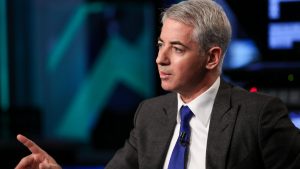The investments of a billionaire investor like Warren Buffett can be massive. That can seem a far cry from the more modest sums put into shares by most private investors. But, just as a weekend runner can learn lessons from an Olympian, a private investor like myself can draw on the investment choices of Buffett to improve my own chances of success when picking shares for my portfolio. Indeed, Buffett himself has explained that he reckons he could significantly improve his investment returns if he was investing much smaller sums.
If I had £500 to invest right now, I would draw on Buffett’s wisdom in deciding what shares to buy with it. Here is how.
5 Stocks For Trying To Build Wealth After 50
Markets around the world are reeling from the coronavirus pandemic… and with so many great companies trading at what look to be ‘discount-bin’ prices, now could be the time for savvy investors to snap up some potential bargains.
But whether you’re a newbie investor or a seasoned pro, deciding which stocks to add to your shopping list can be a daunting prospect during such unprecedented times.
Fortunately, The Motley Fool UK analyst team have short-listed five companies that they believe STILL boast significant long-term growth prospects despite the global upheaval…
We’re sharing the names in a special FREE investing report that you can download today. And if you’re 50 or over, we believe these stocks could be a great fit for any well-diversified portfolio.
Invest for the long term
With £500 to invest, it can be easy to be impatient. Even a 20% return would only give me £100. An average rate of return would mean I need a very long time to get rich from my £500!
But impatience can be a huge mistake when it comes to investing. Having a short-term focus can lead me into bad decisions. Often it would mean I was thinking more like a trader than an investor.
Buffett does not go in for that at all – and for a reason. His investment philosophy is built on buying a stake in promising businesses at an attractive price, then sitting back and letting time work its magic. That approach relies on having the patience and nerve to take a long-term view. Buffett has said that his preferred holding time for shares is “forever”. In practice that may be an exaggeration, but many of Buffett’s shares have been held for years or decades.
Actually I think this is a useful acid test of a lot of things, from buying shares to choosing a career or neighbourhood. If I ask myself the question, “would I be happy with this position in a year?” I may answer positively. But posing myself the tougher question “would I be happy with this position in a decade?” can focus my mind. That could help me only to go for the opportunities I am deeply enthusiastic about. That could help boost my investment returns. As Buffett says, if someone would not be willing to hold a share for 10 years, they should not think about holding it for even 10 seconds.
Circle of competence
Buffett is emphatic about the importance of only investing in businesses and industries he feels he understands. That means that he misses out on some great opportunities. On other occasions, even when he finally gets into a company like Apple, Buffett misses out on large gains he could have had by investing earlier.
So, why is Buffett so insistent on sticking to his knitting? In short, he sees his job as allocating capital. To do that, he looks at the prospects for a company in future. He then compares that to its current valuation. If he sees a sizeable gap between what he thinks the company can earn in future and its valuation today, Buffett may decide to invest.
But estimating a company’s future earnings potential can be hard enough even when one understands it. For example, what will the smartphone market look like in a decade? Will Apple remain an important player? Or will competitors have eaten into its revenues and profit margins?
Buffett is smart enough to realise that it is difficult enough to assess the outlook for a company when he understands its business model well. Like the rest of us, he has little or no chance of doing it well when he does not understand the business in the first place. The Buffett lesson here is relevant to me as a long-term investor rather than a trader or speculator. I focus my investment activities on companies in business areas I think I understand well enough to make an assessment on future prospects.
Warren Buffett thinks like an owner
With £500 to invest, my stake in a company is probably going to be tiny. Apple has a market capitalisation of more than £2 trillion, for example. So realistically, I will be a very small fish as an investor.
But I think it still makes sense for me to follow Buffett’s approach when it comes to assessing possible investments for my portfolio, by thinking like an owner. For example, if I look at a company and feel its bloated cost base would not be acceptable to me if I owned it, then I would probably not be willing to buy shares in it. As an owner I could at least try to tackle bloated costs, but as a small shareholder I could not. Similarly, a company sacrificing long-term potential for short-term profits would not sit well with me if I owned the whole company. I would not want to buy shares in such a company, either.
Buffett owns many companies outright, but he is also just one shareholder among many in companies such as Coca-Cola and Bank of America. Yet the approach he takes as a shareholder is the same as the one he takes as an outright owner. He looks at a company’s business model, how it is being run and how likely it is to maintain or grow its free cash flows. Thinking like an owner does not mean being misguided about my role as a small shareholder. Instead, it involves applying the same sort of analytical approach to assessing an investment one would use if looking at buying the whole business. Not only do I think that can help me invest with £500, I hope it might also improve my business analysis skills to help me become a better investor in future.
Christopher Ruane has no position in any of the shares mentioned. Bank of America is an advertising partner of The Ascent, a Motley Fool company. The Motley Fool UK has recommended Apple. Views expressed on the companies mentioned in this article are those of the writer and therefore may differ from the official recommendations we make in our subscription services such as Share Advisor, Hidden Winners and Pro. Here at The Motley Fool we believe that considering a diverse range of insights makes us better investors.
This post was originally published on Motley Fool






